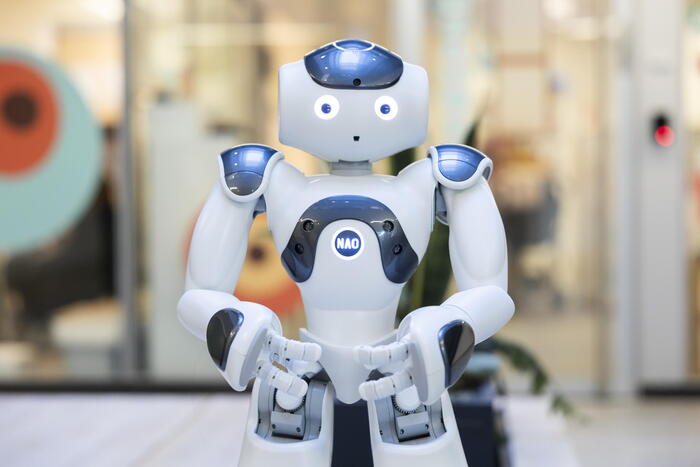Digitization is also gaining in importance in the healthcare sector.
On the occasion of the 5th Digital Health Summit, experts met in Munich and discussed the digital change in medicine.
Digital change is also one of the greatest challenges of our time in healthcare.
It starts on a small scale, for example with the now digital certificate of incapacity for work (AU), and ends with the big questions about the use of artificial intelligence (AI) in everyday medical life.
In November 2022, at the Digital Health Summit (DHS) in Munich, more than 250 experts from medicine, politics and business discussed, among other things, what AI can do in healthcare, who it benefits and how data security can be combined with innovative strength.
Digitization in healthcare: Experts discuss the use of AI at the "Digital Health Summit".
"We need to tear down walls in a system where the fax machine is seen as the most important transformational system," said Dr.
Wolfgang Heubisch, Vice President of the Bavarian State Parliament, at one of the numerous panels, keynote speeches and discussion rounds at the event.
The politician is thus describing the status quo, which is reflected, for example, in the fact that the e-prescription was only introduced in Germany this year.
Likewise, emphasized Dr.
Narges Ahmidi, head of the "Reasoned AI Decisions" department at the Fraunhofer Institute for Cognitive Systems IKS at a discussion on the topic "What problems can AI really solve?": "Artificial intelligence starts with the basics.
For example, how does a patient get their data when they are referred from one doctor to another.”
While it was discussed together whether technologies such as AI, cyber security or telemedicine actually contribute to better care and how people can benefit from them, start-ups also presented their innovations and new ideas at the 3-day event.
The DHS thus managed to build a bridge: between the technical visions of start-ups and industry and the needs of patients, nursing staff and doctors.
The focus on patients when using AI in everyday clinical practice also played an important role in the discussion rounds.
Prof. Dr.
Christina Piazza from the Chair for Medical Applications at the Technical University of Munich (TUM) explained: "We have to focus on the user and ask the right questions to find out
Don't miss anything: You can find everything to do with health and well-being in the regular health newsletter from our partner Merkur.de.
Artificial intelligence in healthcare: advantages of robots in medicine
According to the experts, people should be the focus of all discussions about digital change in medicine.
The aim is to use the new options to improve patient care and at the same time to make the work of the nursing staff easier.
"An artificial intelligence can work 24 hours a day and never gets tired," explained Dagmar Schuller, Managing Director and co-founder of audEERING GmbH, explaining the advantages that a robot, for example, can have.
"It has to feel like a human, not like a robot," says Piazza.
You also have to take away the fear of using AI from patients.
In addition, AI should by no means replace human nursing staff.
Rather, it is about cooperation.
+
At the Digital Health Summit 2022, more than 250 experts from medicine, business and politics discussed, among other things, what artificial intelligence (AI) can do in healthcare.
© Bert Willer
AI can relieve nursing staff of tasks, giving them more time and resources to be more empathetic to patients, for example.
It is important to build trust with patients when it comes to using artificial intelligence.
It is therefore clear that the healthcare system will also become more and more digital in the future.
At the moment we are still at the very beginning, says Prof. Dr.
dr
Jens Kleesiek from the Institute for AI in Medicine at the University of Witten/Herdeck, but: "There will come a time when it will be considered unethical if patients are not examined with an algorithm."


/cloudfront-eu-central-1.images.arcpublishing.com/prisa/KZKXCBLQPFGKBBIPCE5FNBV6L4.jpg)
/cloudfront-eu-central-1.images.arcpublishing.com/prisa/LFO6NYKDYNGQJMNQRNDG6YRK7Q.jpg)


/cloudfront-eu-central-1.images.arcpublishing.com/prisa/YIVHXZ4ULVEKTCBSNO56RKOWKI.jpg)


